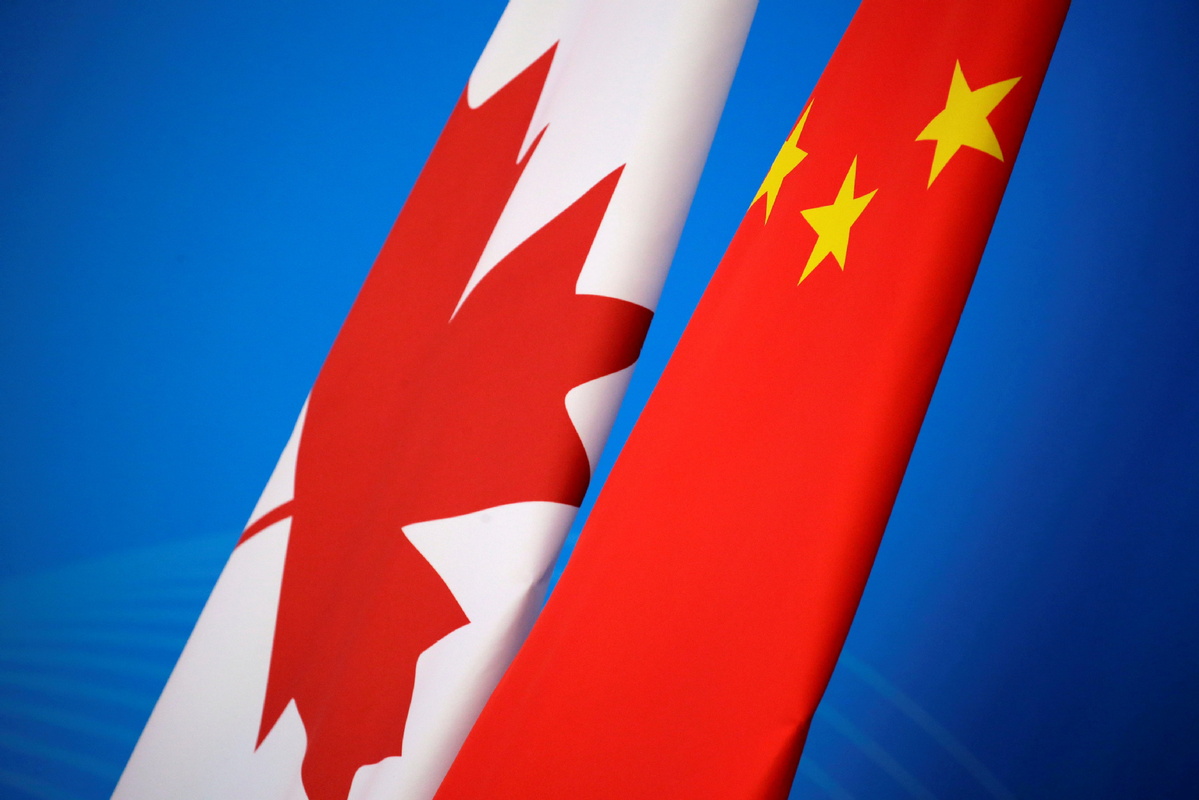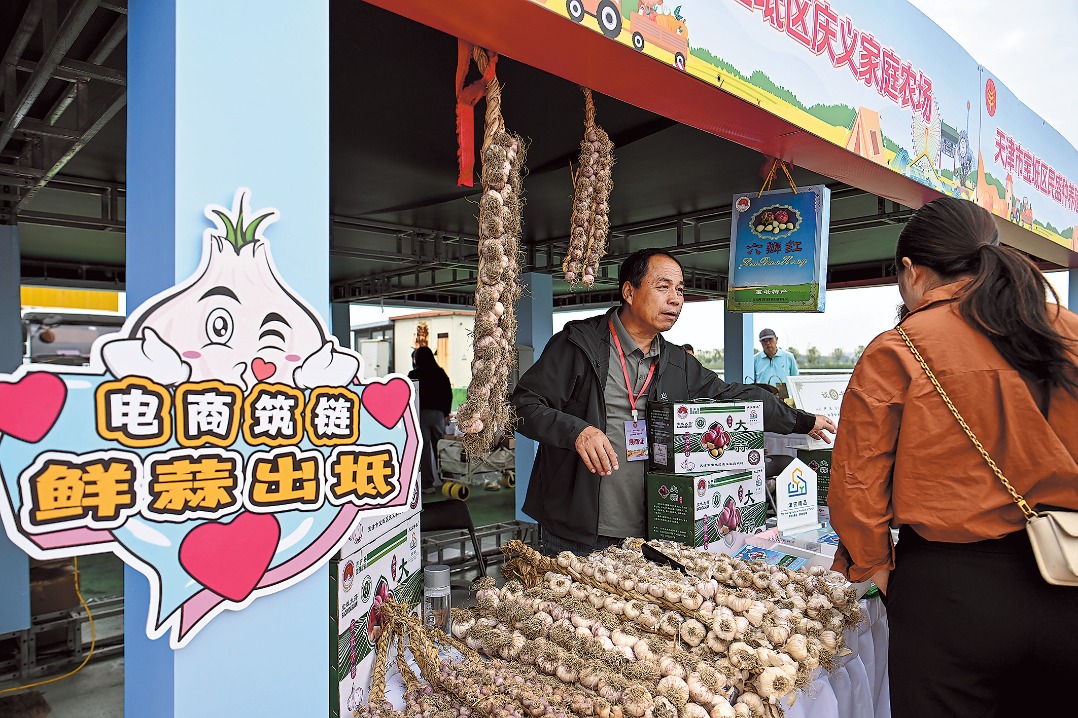Canada-China ties reach a crossroad
By Hugh Stephens | CHINA DAILY | Updated: 2021-09-30 07:02

What impact will Canadian Prime Minister Justin Trudeau's recent minority electoral win have on Canada-China relations?
And what are the implications for the relationship of the sudden resolution of the Meng Wanzhou case and the release of Michael Kovrig and Michael Spavor, two Canadian nationals held in China on national security charges?
Until the unexpectedly quick return to Canada of the "two Michaels", I would have said "not much" in response to the first question. But the dropping of the extradition case against Huawei Chief Financial Officer Meng by a Canadian court followed by the almost simultaneous release of the Michaels removes a major impediment to the resumption of China-Canada dialogue.
However, despite a return to more normal diplomatic relations, the two sides may not return, any time soon, to the kind of warmish relationship enjoyed by Canada and China during the first years of the Trudeau government. The well has been badly poisoned by the detention of Meng in Vancouver on a US warrant and the subsequent arrest of the two Canadians in China.
The solution always lay with either British Columbia Associate Chief Justice Heather Holmes, the presiding judge who could have ruled either that Meng was subjected to an abuse of process during her detention or that the flimsy US case did not meet the bar for extradition, or with the US Department of Justice which could have, and eventually did, reach a plea bargain deal.
The fact that Meng neither paid a fine nor had to plead guilty underlined the weakness of the US legal case, combined with the fact that Canada had worked hard to convince the Joe Biden administration to show flexibility.
The question now is: How can China and Canada repair their ties?
Trudeau's election win will remove an ideological blockage to starting dialogue, a situation that would have occurred had the Conservative Party gained power in Canada. Still, it will be a long, slow climb back to anything resembling normality in this 50th year of Sino-Canadian diplomatic relations.
Pushed by the Conservatives and by public opinion to take a harder stance toward China, the Trudeau government has tried to walk a fine line over the past three years. A series of external events, ranging from concerns about the situation of Uygurs in Xinjiang to changes to Hong Kong's legal and governmental institutions has put additional pressure on Trudeau. In the only English language televised debate that took place during the election, when Trudeau was accused by Conservative leader Erin O'Toole of being soft on China, he retorted that "you can't be lobbing tomatoes across the Pacific".
In light of the recent developments in the Meng case, we now know why he was so cautious.
There remains a considerable constituency in Canada for improved economic relations with China, and the latest developments will bring a sigh of relief to those interested in further developing Canada's second-largest export market.
Although it is facing its own pandemic-related challenges, China's economy has continued to perform strongly and is on track to achieve about 8 percent growth this year. Also, despite some reshoring and diversification, China plays an outsized role in global supply chains, and Canada depends heavily on China for supply of many key components. And the Trudeau government cannot ignore that.
Moreover, China has continued to advocate greater trade liberalization while maintaining the dominance of State-owned enterprises in the economy. The latest iteration is its formal application to join the Comprehensive and Progressive Trans-Pacific Partnership.
China's application presents Canada, a charter member of the CPTPP, with a dilemma but also some negotiating leverage. Along with the CPTPP's other members, Canada must agree to accept the application of new aspirants. And to meet the CPTPP's high standards, so as to join the partnership, China will need to make significant market-opening changes. Which would be good news for Canada.
Canada's response will be further complicated by its commitments under the US-Mexico-Canada Agreement, which contains a provision that requires any of the three member states to give advance notice if they intend to enter trade negotiations with a non-market economy, and to share information on the negotiation when talks begin. This "poison pill" clause, inserted at US' insistence, is directed at China despite China not being specifically named in the agreement.
Canada will also need to take account of its fraught relations with China as it forges its own Indo-Pacific strategy. The US has already launched a challenge to China with the formation of AUKUS (an Australia-United Kingdom-US security partnership) and its leadership of Quad (a loose strategic partnership among the US, Australia, Japan and India).
Although Canada is yet to fully develop its Indo-Pacific strategy, under Trudeau, it is likely to try to balance its existing close security relationship with the US while seeking to retain a degree of maneuverability with respect to China and other economies in the Asia-Pacific region, specifically the member states of the Association of Southeast Asian Nations.
Indeed, the latest developments present an opening for the recalibration of Canada-China relations. In this respect, the re-election of Trudeau and the Liberal Party means pragmatism and careful diplomacy will continue to be the guiding principles in rebuilding and reshaping the relationship with China. But the souring of Canadian public opinion will constrain the Trudeau government, and any return to the earlier status quo is unlikely to happen for the foreseeable future.
The views don't necessarily reflect those of China Daily.
The author is a distinguished fellow of Asia Pacific Foundation of Canada.
If you have a specific expertise, or would like to share your thought about our stories, then send us your writings at opinion@chinadaily.com.cn, and comment@chinadaily.com.cn.
























